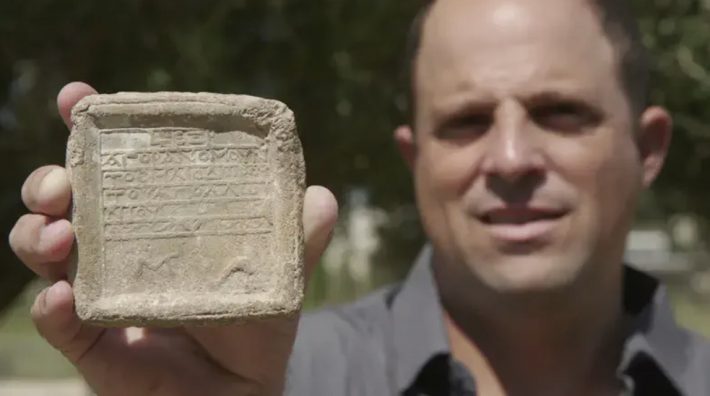A rare lead weight from 148 BCE, inscribed with the name of a Hellenistic trade regulator, was seized in Jerusalem – a discovery that could rewrite the history of governance and commerce in ancient Israel.
A Discovery Straight Out of History
In a dramatic operation in Jerusalem, the Israel Antiquities Authority’s Theft Prevention Unit seized a 2,150-year-old lead weight, astonishingly preserved and engraved with a Greek inscription. The artifact bears the words: “Heliodorus son of Apollonios, Agoranomos” — identifying the official once tasked with regulating trade, ensuring honest weights and measures during the Seleucid era (148/7 BCE).
Alongside the inscription appears a mysterious dolphin symbol, whose meaning may hold the key to pinpointing the artifact’s exact city of origin.
A Glimpse Into Hellenistic Israel
The seized weight represents a one Mina unit — equal to 100 Greek drachmas — and is strikingly accurate even today. The Greek letter “M” etched on it is believed to stand for Mina.
According to experts, the artifact illuminates the influence of Hellenistic culture in Idumea, particularly in Maresha, the capital at the time. Archaeological parallels from Maresha reveal a family legacy of agoranomoi (market regulators), with successive officials named Apollonios, Heliodoros, and Antipatros spanning the same decades.
“This suggests that key government positions often stayed within influential families,” explained Ido Zangen of the Israel Antiquities Authority.
The Shadow of Heliodorus
Intriguingly, history records another notorious figure: Heliodorus the Dioiketes, finance minister of King Seleucus IV, who attempted to confiscate treasure from the Jerusalem Temple in 178 BCE — an act some scholars believe fueled the Hasmonean Revolt.
The Battle Against Looting
The artifact was discovered in a Jerusalem antiquities shop, where inspectors interrogated the owner in an attempt to trace the looters. Officials stressed that its removal from its original context erased priceless historical knowledge, leaving only speculation about its true origin.
“The looting of antiquities robs us of our shared history,” warned Ilan Haddad, head of Antiquities Trade Supervision. Minister of Heritage Rabbi Amihai Eliyahu echoed: “Every artifact is a piece of the puzzle of Israel’s past — and we are determined to protect it.”





